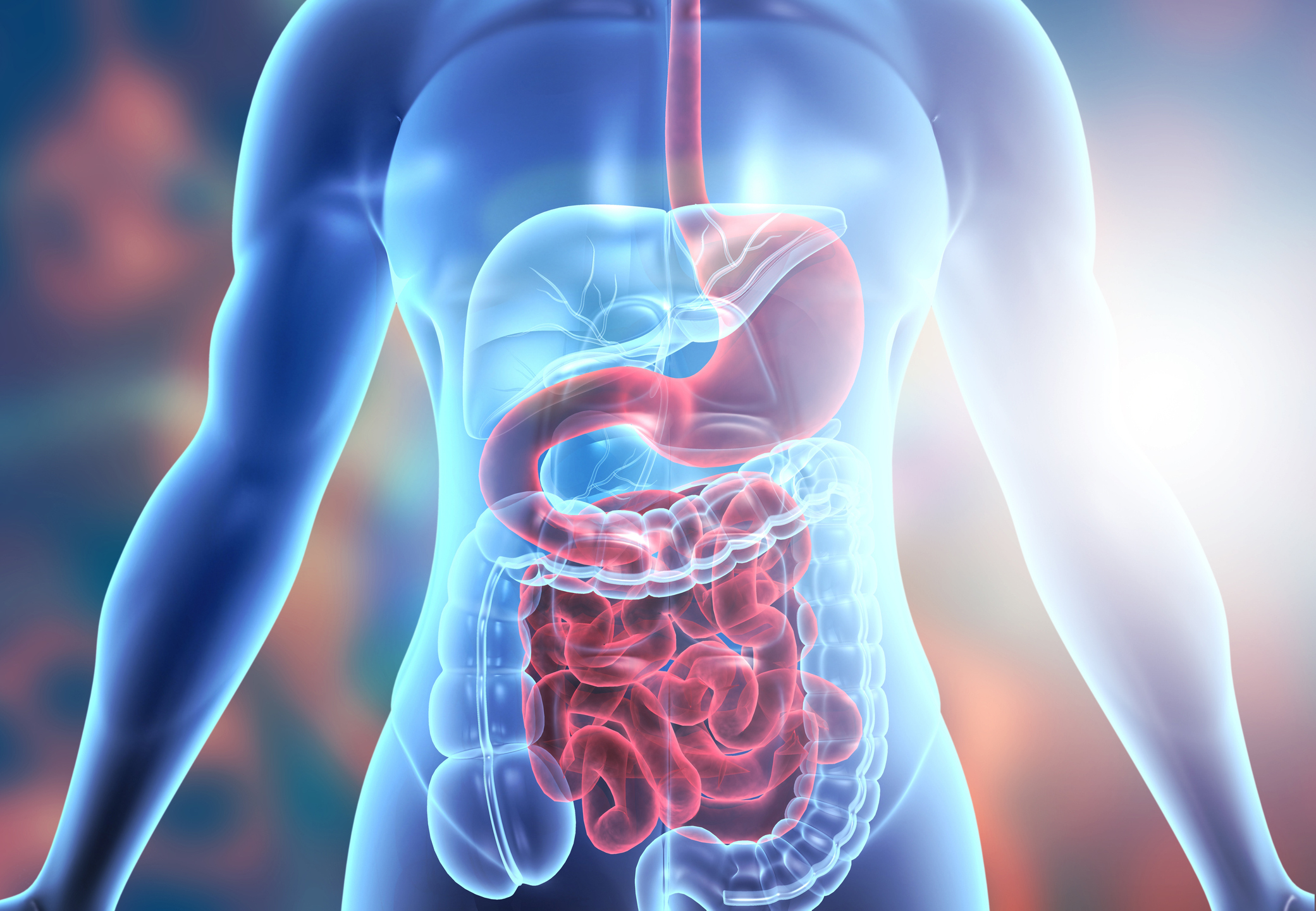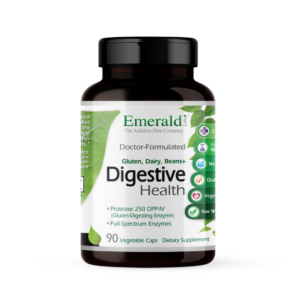Digestive Health – watch this video as Lucas reviews Emerald Labs Digestive Health supplement and the unique ingredient that truly sets it apart from the rest!
Improper Digestion Linked To Reduced Immune Function
Many people have been searching for ways to naturally optimize their immune response. There has been a lot of information written about things like diet, sleep, and exercise and how they impact our health in both positive and negative ways. One major thing they all have in common is the role they play in the quality of the body’s immune response – but there is one area that plays even a bigger role when it comes to immune health, and that’s the gut!
About 70% of Immune System Originates Within Our Gut
These tissues are called G.A.L.T., or Gut Associated Lymphoid Tissue, which lives in the small intestine and consists of various immune cells that protect the body from foreign bacteria. In short, if you have a healthy gut, your immune response will perform better too!
Certain people with chronic digestive issues or food sensitivities have a more difficult time digesting their food which can result in poor absorption into the small intestine. This can cause issues like inflammation and irritation in the lining of the small intestine. Not to mention, stress is another big factor that can bring on unnecessary digestive issues.
Along the lining of the small intestine are unique folds known as villi which help with absorption. When these folds become inflamed due to things like celiac disease, IBS, IBD, autoimmune disease, obesity, type 1 diabetes, and non-alcoholic fatty liver disease, substances begin to absorb through the folds and are released into the bloodstream – which would normally not be absorbed through a healthy lining.
Have You Heard the Term "Leaky Gut Syndrome"?

For some of you this process may sound a bit familiar. Have you heard the term “Leaky Gut Syndrome”? Well it actually is exactly what it sounds like. The term refers to an increase in intentional absorption into the bloodstream.
The natural barrier in our gut is designed to naturally prevent bacteria, yeast, and other microbes from entering the bloodstream. When the gut begins to “leak’, the immune system is activated and begins to defend the body by attacking these unknown invaders, commonly resulting in increased inflammation that can lead to systemic symptoms and immune dysregulation.
Do you think you may have Leaky Gut Syndrome?
Take a Look At Some of the Most Common Symptoms Below:
- Pain Medications
- Antibiotic Use
- Standard American Diet
- High-stress Environment
- Undiagnosed Intestinal Infections
- Gluten Allergy
- Food Sensitivities
- Nutritional Deficiencies
- Chronic Illnesses
One of the best ways to help protect the body against the effects of a leaky gut is to consume foods high in probiotics like yogurt, sauerkraut, and kombucha.
But for those who may not be consuming enough probiotics and digestive enzymes through diet alone, a daily supplement could be a great option to help improve natural digestive functions.
Try our doctor formulated Digestive Health today!
Digestive Health contains clinical amounts of full spectrum digestive enzymes that may help stimulate the body’s natural enzyme systems to help breakdown most common food sensitivities including Gluten, Dairy and Beans.*
Use code DIGEST to save 15% off instantly!
Formulated by Dr. Mark Stengler NMD.
Known as America’s Natural Doctor to his patients, readers and audiences across North America, Mark Stengler is a licensed naturopathic medical doctor. His passion is to combine the best of conventional and natural medicine to achieve optimized health for his patients. Dr. Stengler has personally formulated each of the Emerald Labs Additive-Free products according to the high standards of his health practice. Read more about Dr. Stengler…
*These statements have not been evaluated by the Food and Drug Administration. This product is not intended to diagnose, treat, cure or prevent disease. CONSULT YOUR PHYSICIAN OR OTHER QUALIFIED HEALTH CARE PROVIDER FOR ADVICE REGARDING ANY MEDICAL CONDITION. DO NOT ATTEMPT TO SELF-DIAGNOSE OR TREAT ANY MEDICAL CONDITION.
†Selected References
Hall, John E. Guyton and Hall Textbook of Medical Physiology E-Book (Guyton Physiology) (Elsevier) Health Sciences. Kindle Edition.
Lee, B., Moon, K. M., & Kim, C. Y. (2018). Tight Junction in the Intestinal Epithelium: Its Association with Diseases and Regulation by Phytochemicals. Journal of immunology research, 2018, 2645465. https://doi.org/10.1155/2018/2645465
Linsalata, M., Riezzo, G., D’Attoma, B., Clemente, C., Orlando, A., & Russo, F. (2018). Noninvasive biomarkers of gut barrier function identify two subtypes of patients suffering from diarrhoea predominant-IBS: a case-control study. BMC gastroenterology, 18(1), 167. https://doi.org/10.1186/s12876-018-0888-6
Wells J, Brummer R, Derrien M et al. Homeostasis of the gut barrier and potential biomarkers. American Journal of Physiology-Gastrointestinal and Liver Physiology. 2017;312(3):G171-G193. doi:10.1152/ajpgi.00048.2015




